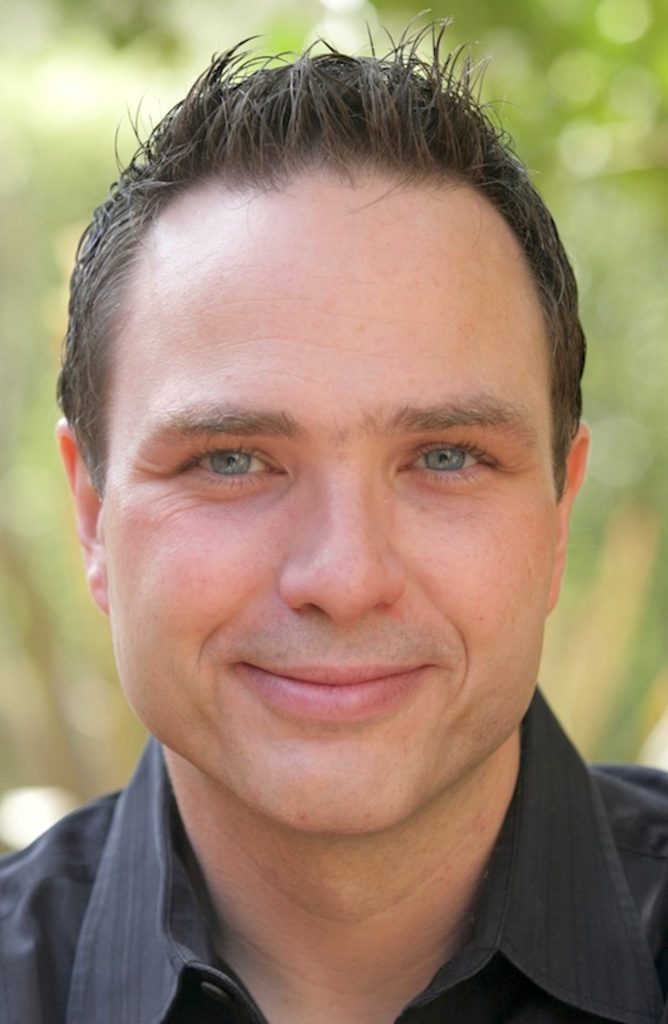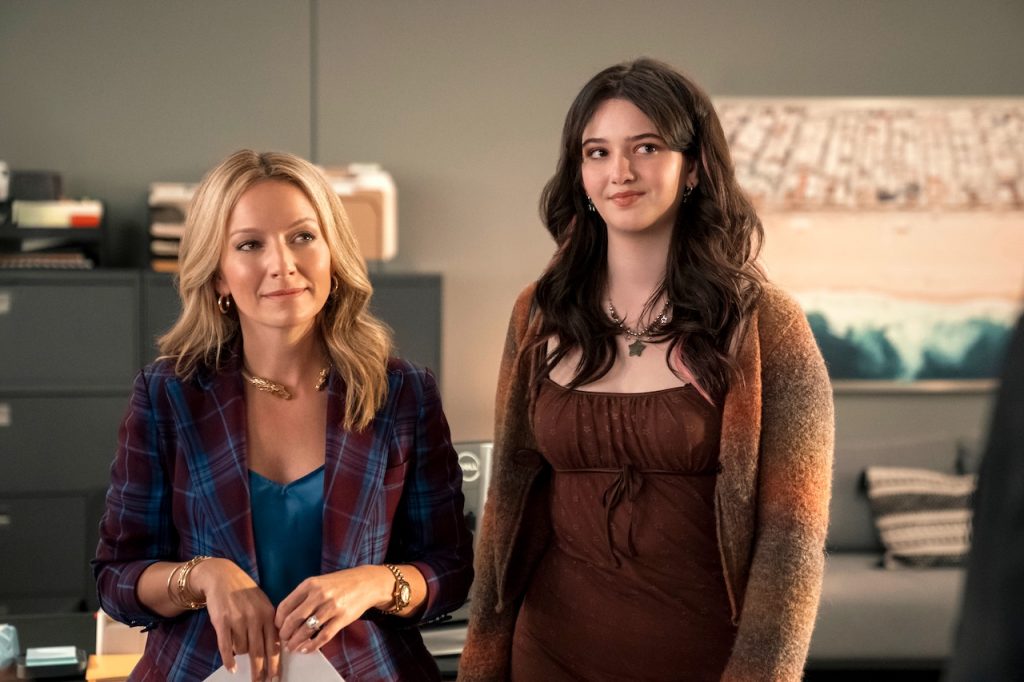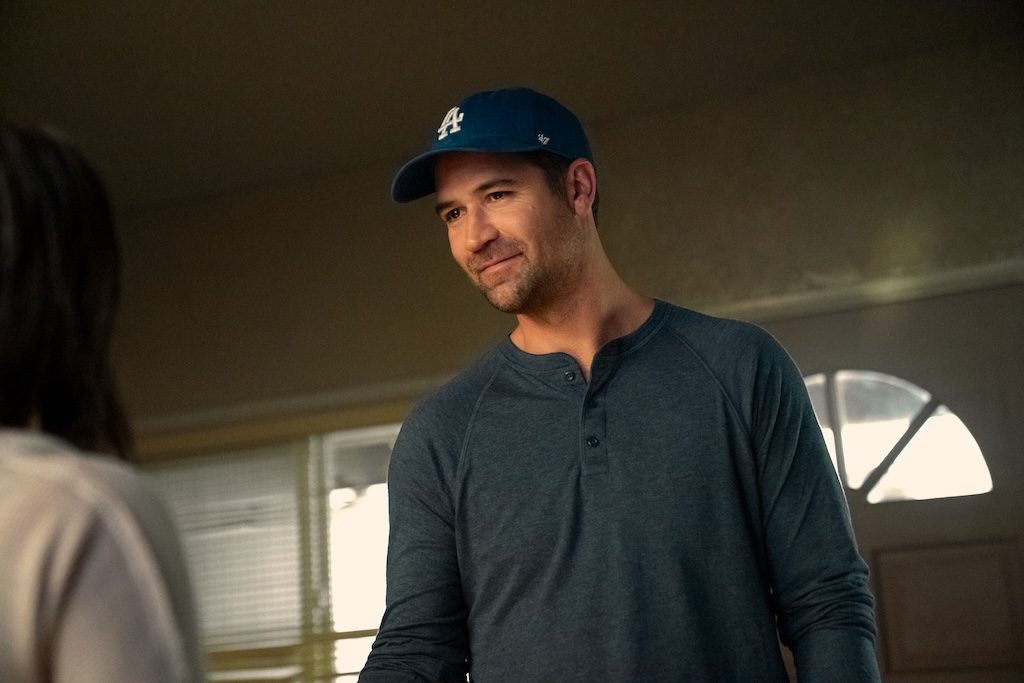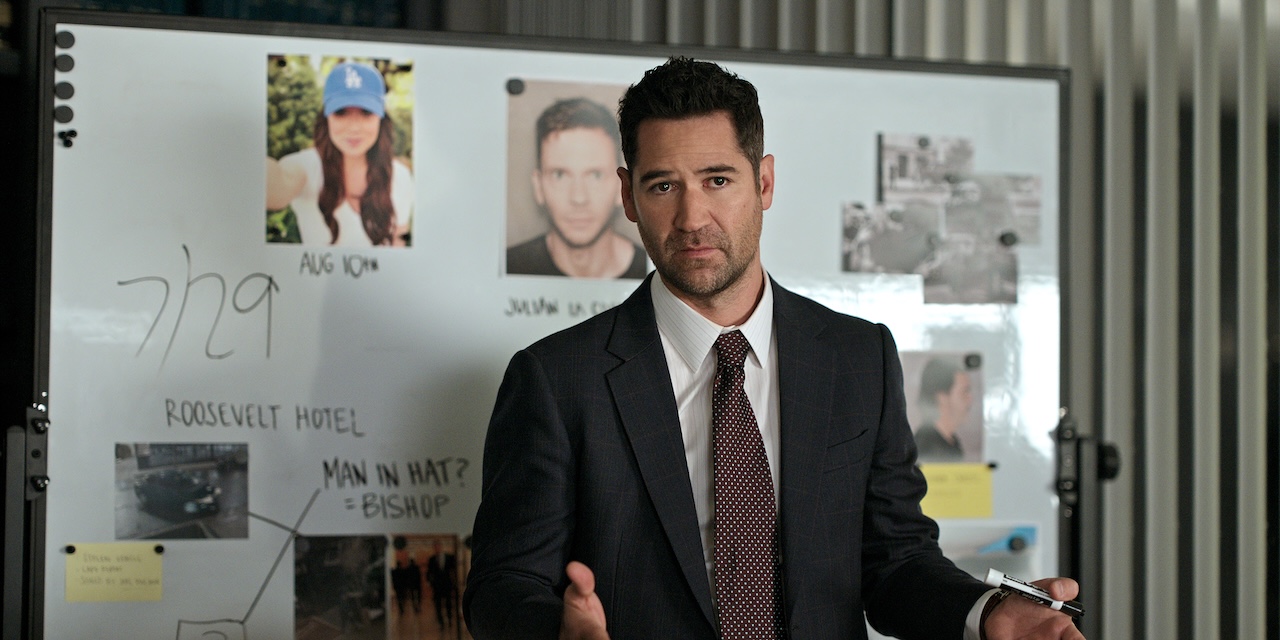“Growing up in the environment that I did, working in Hollywood was like saying you wanted to be an astronaut and go to Mars,” Ted Humphrey jokes. The showrunner of Netflix’s The Lincoln Lawyer took an unconventional path to Hollywood, first pursuing law school and practicing in Washington D.C. before making the bold decision to chase his entertainment industry aspirations.
“I always had it in the back of my mind that I wanted to do this, but I didn’t quite know how to go about doing it,” Humphrey explains. “I almost left law school and transferred to NYU Film School at one point.” In his twenties, before acquiring the responsibilities of a mortgage and family, Humphrey made the decisive to move.
“I literally quit my job and drove across the country in my Honda Civic with my few meager belongings in the trunk and came out to L.A. to pursue a career doing this.” His timing, though unplanned, proved fortuitous. Humphrey entered television during what would become known as the “golden age of TV” in the early 2000s, a period that provided invaluable hands-on experience he fears today’s emerging writers might miss.

Ted Humphrey
“We shoot our show in LA, which used to be the standard thing, but is now very unusual. So much is now shot elsewhere for tax credits, and it’s robbed this generation of writers of the experience that I and people like me had — seeing things through from A to Z.”
Initially, Humphrey set his sights on feature films. “I really came out to LA and my ambition was to write and direct movies. The fact that you haven’t seen twenty big movies with my name on them is indicative of the fact that in feature writing, you can make a living and write a lot of movies that nobody ever sees.”
This frustration with the feature world led him to television, where he found success with The Good Wife. The acclaimed series earned him multiple Emmy, Golden Globe, and Writers Guild nominations for Best Drama. His experience as a former lawyer proved invaluable. “One of the things that I brought to The Good Wife and that really intrigued me was the politics of what it’s like to work in a law firm,” he explains. “That was a big part of that show.”
Creating The Lincoln Lawyer
The development of The Lincoln Lawyer series, a collaboration with television legend David E. Kelly, exemplifies the changing dynamics of television production. “Netflix is absolutely the right home for this show. It’s a show that really works well in a binging environment. I’m not sure how well it would have worked as an ‘episode-a-week’ show on cable TV or network TV.”
His partnership with Kelly has been invaluable. “David is an enormously talented and very nice person and very generous,” Humphrey says of the legendary showrunner, whose wall of Emmys serves as a testament to his impact on television.
Assembling the right writing team is crucial to capturing authentic stories. “We make a show that really reflects what Los Angeles looks and sounds like,” he explains. “The authenticity that we bring to the show obviously comes first and foremost from the writers.” His approach to staffing emphasizes diversity and real-world experience.
At one point during season three, he proudly notes they had “a female first AD, which is fairly unusual, and a female Latina DP, this incredibly diverse writer’s room and a cast and crew making this show about an incredibly diverse city.”
This commitment to authenticity extends to how the show handles contemporary issues. Season two demonstrates this perfectly, updating a fifteen-year-old story about the subprime mortgage crisis to address current concerns about gentrification while incorporating elements of LA’s renowned food scene.

Lorna Crane (Becki Newton) and Hayley Haller (Krista Warner) Photo by Lara Solanki/ Netflix
“Michael [Connelly] put out a statement that he was so proud of how we had taken a story that was written fifteen years ago and updated it to something very relevant to today while not losing any of the character aspects of the book.”
The shift from network television to streaming has brought both opportunities and challenges. “Making twenty-two episodes a year of network television is an insane grind,” Humphrey reflects on his network TV days. “There were times on The Good Wife where the period between kicking around an idea and when that episode would be on the air was maybe two and a half months.”
Streaming allows for more careful crafting of stories. “Streaming gives you the opportunity to really hopefully get it right and tell these things more like you can get more of the scripts done in advance,” he explains. “You can go back and backfill things.”
Star Power and Representation – Manuel Garcia-Rulfo
The show’s commitment to authenticity extends beyond the writing room to its casting. Manuel Garcia-Rulfo, who plays Mickey Haller, sees the role as emblematic of changing opportunities in Hollywood. “When I started, it was always very small parts, very specific parts, and now you can see it playing a lawyer and show,” Garcia-Rulfo reflects.

Mickey Halle (Manuel Garcia-Rulfo) Photo by Lara Solanki/ Netflix
“You can see so many lead Latinos leading films or TV shows. I think we still have a long way to go, but the doors are definitely opening.” The casting process itself reflected the changing times, taking place during the pandemic. “The callbacks were really weird because I couldn’t fly because it was the pandemic. So I had to do the auditions through Zoom,” Garcia-Rulfo recalls. “But I clicked right away with the material.”
The show’s approach to the character also deepened the source material’s representation. “In the books, Mickey Haller is half Mexican and half American. They try to explore that side more,” Garcia-Rulfo notes.
The Future of Storytelling
Despite current industry challenges, from AI concerns to the shifting landscape of network television, Humphrey maintains an optimistic outlook. “I don’t care about AI. I don’t care about the supposed decline of network TV and whatever with the death of the movie industry.”
“The thing that is never going to die is storytelling and the demand for storytelling,” he emphasizes. “We may change the methods and media that we bring stories to people, but the skills are the same and the demand is the same.”
His advice for aspiring creators remains steadfast. “Be passionate about stories, be passionate about storytelling. If you are passionate about how much story you want to tell, you’re going to find a way to tell it. And if it’s a really great story, I really believe people will beat a path to your door to hear it or see it.”
Looking back on his unconventional journey from lawyer to showrunner, Humphrey has no regrets about his career change. “I found myself in a place in my previous career where I was really miserable and I knew what I really wanted to do and it was this,” he reflects. “I’ve never once regretted that decision.”
[More: “A Redemption Story Of A Man Finding His Way Back” Ted Humphrey Talks ‘The Lincoln Lawyer’]
These interviews have been condensed. Listen to full audio interviews with showrunner Ted Humphrey here and with actor Manuel Garcia Rulfo here.

